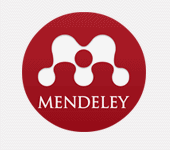TOXIC POSITIVITY: THE DYNAMICS OF INTERPERSONAL COMMUNICATION ON MEDIA X IN THE ERA OF CANCEL CULTURE
Abstract
This study aims to examine the dynamics of interpersonal communication on the Media X platform within the context of the phenomena of toxic positivity and cancel culture. These two phenomena represent a paradox of digital culture: on one hand, there is an incessant push for maintaining positivity, often dismissing the validity of negative emotions; on the other hand, there is the rise of collective cancellation practices that can create intense social pressure. This research employs a qualitative approach using a netnographic strategy, supported by content analysis of user-generated posts and interactions. Data were collected through digital observation, documentation of online conversations, and the use of Brand24 as a social media analytics tool. The findings reveal that toxic positivity is frequently normalised through phrases such as "keep your spirits up," which appear across various emotional contexts but tend to suppress more honest and complex emotional expressions. Simultaneously, cancel culture has evolved as a mechanism of collective moral control, often enacted without clarification processes or opportunities for restitution. These phenomena shape a communication landscape characterised not only by rapid and emotional exchanges but also by intense social and symbolic pressures. This study underscores the necessity for critical awareness and ethical communication practices within a digital ecosystem marked by polarisation. In conclusion, online spaces require a more reflective, empathetic, and inclusive communication approach to ensure that digital practices support emotional well-being and foster humane dialogue, rather than merely reinforcing image management.
Full Text:
PDFReferences
Ali, B. A., Abdulsalam, H. M., Almadani, S., & Manuel, P. (2024). A study of a hybrid Fogg-Hook based social media addictive algorithm from the perspective of Kuwait Society. Journal of Engineering Research (Kuwait). https://doi.org/10.1016/j.jer.2023.09.008
Beabout, K., Bernhards, C. B., Thakur, M., Turner, K. B., Cole, S. D., Walper, S. A., Chávez, J. L., & Lux, M. W. (2021). Optimization of Heavy Metal Sensors Based on Transcription Factors and Cell-Free Expression Systems. ACS Synthetic Biology, 10(11). https://doi.org/10.1021/acssynbio.1c00331
Berryessa, C. M., Dror, I. E., & McCormack, C. J. B. (2023). Prosecuting from the bench? Examining sources of pro-prosecution bias in judges. Legal and Criminological Psychology, 28(1). https://doi.org/10.1111/lcrp.12226
Book Review: Publication Manual of the American Psychological Association (Seventh Edition). (2020). The International Journal for Research in Education, 44(3). https://doi.org/10.36771/ijre.44.3.20-pp352-356
Chen, C., & Vanclay, F. (2020). University social responsibility in the context of economic displacement from the proposed upgrading of a higher education institution: The case of the University of Groningen Yantai campus. International Journal of Educational Development, 78. https://doi.org/10.1016/j.ijedudev.2020.102268
Dewan, A., Shrestha, B. R., Magar, R. T., & Gaudel, P. (2022). New distribution record of Gazalina chrysolopha Kollar, 1844 (Lepidoptera: Notodontidae) in the Trans-Himalayan region of western Nepal. Journal of Threatened Taxa, 14(8). https://doi.org/10.11609/jott.7976.14.8.21742-21744
Fernando, Z. J., Pujiyono, Rozah, U., & Rochaeti, N. (2022). The freedom of expression in Indonesia. Cogent Social Sciences, 8(1). https://doi.org/10.1080/23311886.2022.2103944
Fitouchi, L., & Singh, M. (2022). Supernatural punishment beliefs as cognitively compelling tools of social control. In Current Opinion in Psychology (Vol. 44). https://doi.org/10.1016/j.copsyc.2021.09.022
Flanagin, A., Kendall-Taylor, J., & Bibbins-Domingo, K. (2023). Guidance for Authors, Peer Reviewers, and Editors on Use of AI, Language Models, and Chatbots. In JAMA (Vol. 330, Issue 8). https://doi.org/10.1001/jama.2023.12500
Lew, Z., & Flanagin, A. J. (2023). Toxic positivity on social media: The drawbacks and benefits of sharing positive (but potentially platitudinous) messages online. New Media and Society. https://doi.org/10.1177/14614448231213944
Marčić, B., Marčić, L., & Marčić, M. (2023). Wrist Drop: Acute Ischemic Stroke or Radial Nerve Palsy or Both. Acta Medica Iranica, 61(8). https://doi.org/10.18502/acta.v61i8.14908
Pierre, A. J. (2023). Course repetition in pre-licensure nursing students: A scoping review. In Journal of Professional Nursing (Vol. 48). https://doi.org/10.1016/j.profnurs.2023.05.003
Sterkenburg, P. S., Kempelmann, G. E. M., Hentrich, J., Vonk, J., Zaal, S., Erlewein, R., & Hudson, M. (2021). Scale of emotional development-short: Reliability and validity in two samples of children with an intellectual disability. Research in Developmental Disabilities, 108. https://doi.org/10.1016/j.ridd.2020.103821
Strzelecka, E. K. (2023). Gender, Nationalism and Revolution in Western Sahara: Women's Participation in the Polisario State-Movement. Revista de Estudios Internacionales Mediterraneos, 35. https://doi.org/10.15366/reim2023.35.005
Tidwell, L. C., & Walther, J. B. (2002). Computer-Mediated Communication Effects on Disclosure, Impressions, and Interpersonal Evaluations Getting to Know One Another a Bit at a Time. Human Communication Research, 28(3). https://doi.org/10.1093/hcr/28.3.317
Upadhyay, I. S., Srivatsa, K. V. A., & Mamidi, R. (2022). Towards Toxic Positivity Detection. SocialNLP 2022 - 10th International Workshop on Natural Language Processing for Social Media, Proceedings of the Workshop. https://doi.org/10.18653/v1/2022.socialnlp-1.7
Vassallo, J. P., Banerjee, S., Zaman, H., & Prabhu, J. C. (2023). Design thinking and public sector innovation: The divergent effects of risk-taking, cognitive empathy and emotional empathy on individual performance. Research Policy, 52(6). https://doi.org/10.1016/j.respol.2023.104768
Weyant, E. (2022). Research Design: Qualitative, Quantitative, and Mixed Methods Approaches, 5th Edition. Journal of Electronic Resources in Medical Libraries, 19(1-2). https://doi.org/10.1080/15424065.2022.2046231
DOI: http://dx.doi.org/10.30829/jai.v14i1.24661
Refbacks
- There are currently no refbacks.
Copyright (c) 2025 Muhammad Rizkie Habibie Harahap, Yusniah Yusniah

This work is licensed under a Creative Commons Attribution-ShareAlike 4.0 International License.





